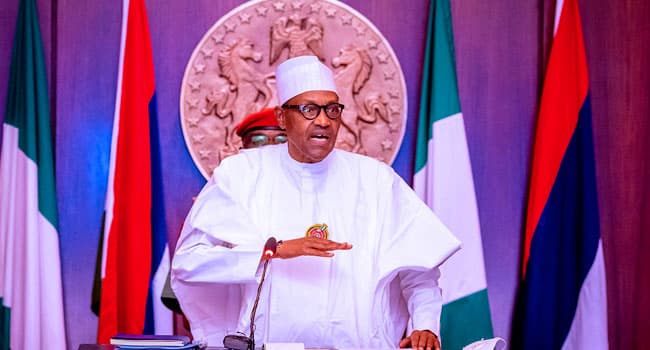President Muhammadu Buhari said that his administration is committed to improving tax revenue in Nigeria.
President Buhari made this known on Tuesday at the second National Tax Dialogue Week in Abuja.
The Presidential Spokesperson, Femi Adesina said that the President characterised Nigeria’s current tax system by fragmented administration, multiple and sometimes, overlapping taxes.
“In most tax-efficient nations, tax administrative processes and practices are harmonised within a single system,” he said.
“One key deliverable of this year’s tax dialogue is to promote synergy in tax administration among the different tiers of government.
“Harmonising taxpayer-identification across the country is a good start, but we must do more to promote ease of doing business (including ease of tax compliance) in Nigeria.
“On our part, we have started by clarifying in the 2021 Finance Act that FIRS is the sole authority to administer tax for the federal government.
”This clarification became necessary in order to avoid taxpayers being burdened with multiple tax compliance obligations towards different agencies of the same government.
”Multiplicity of tax administration is as undesirable as a multiplicity of taxes; it creates uncertainty and instability; and above all, it is inefficient.”
President Buhari then said there is an urgent need to maximise domestic revenue within the extant tax policy and laws.
He, therefore, proposed improved tax revenue for the country which will not necessarily impose new taxes on Nigerians.
”We all know those good intentions are not enough as they simply cannot pay for infrastructure, security or social amenities. We must therefore improve tax revenue without necessarily raising new taxes,” he said.
“Revenue from commodities, including crude oil, are too volatile and unreliable. Therefore, I pledge the government’s support for any viable initiative for improving tax revenue that should emanate from this dialogue.”
Nigeria’s President revealed that the nation needs to do more in securing buoyant domestic tax revenue.
“According to the Organisation of Economic Cooperation and Development (OECD), in its Revenue Statistics in Africa 2021, the average ratio of Tax-to-GDP of 30 selected African countries in 2019 was 16.6 percent while Nigeria recorded a mere 6.0 percent,” he said.
“It is obvious that much needs to be done in the area of tax revenue mobilisation.
“It is my expectation that the discussions at this 2022 National Tax Dialogue will be focused on what we must do to maximise legitimate revenue collection and massively improve the tax-to-GDP ratio.”













